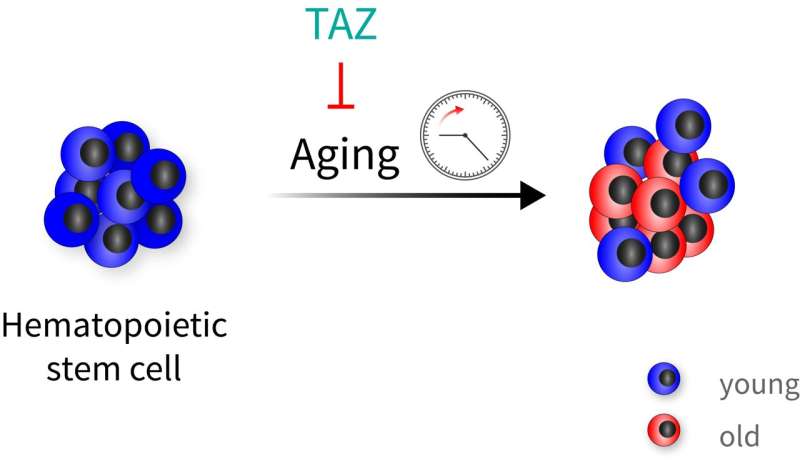by by Kerstin Wagner, Leibniz-Institut für Alternsforschung – Fritz-Lipmann-Institut e.V. (FLI) – Phys.org
Image: Hematopoietic stem cells age very heterogeneously. The TAZ protein, a co-activator of the Hippo signaling pathway, can protect blood stem cells from aging. Thus, in addition to old cells, one also finds “youthful” cells when the protection has worked. Credit: FLI / Björn von Eyss
A well-functioning immune system is essential for protection against infections. However, with increasing age, the functioning of the immune system diminishes, which is also due to age-related damage in hematopoietic (blood) stem cells. Researchers at the Leibniz Institute on Aging—Fritz Lipmann Institute (FLI) in Jena, Germany, have now discovered how the co-activator of the Hippo signaling pathway, the TAZ protein, can protect hematopoietic stem cells from aging and thus prevent them from loss of function. Moreover, hematopoietic stem cells age very heterogeneously. In addition to old cells, one can also find “youthful” cells when the protective mechanism has worked effectively.
Our blood is constantly being regenerated from hematopoietic stem cells (HSCs). With increasing age, however, these blood stem cells experience a loss of function and their regenerative potential diminishes. In older people, there is another problem with blood formation (hematopoiesis): they form fewer lymphocytes (cells of the immune system), so they are often no longer able to cope as well with infections and usually do not show a highly effective immune response after a vaccination.

